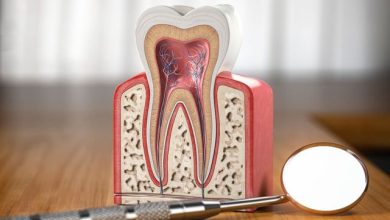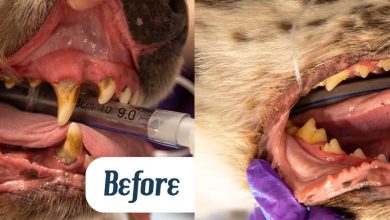How to Safely Maintain Dental Crowns: Expert Tips+18:30

To care for dental crowns, regularly brush and floss your teeth, avoid chewing hard foods, and visit your dentist for routine check-ups. A dental crown is a cap made of ceramic, metal, or porcelain that is placed over a damaged tooth to restore its shape, size, strength, and appearance.
While dental crowns are durable and long-lasting, they require proper maintenance to ensure their longevity. By following a few simple steps, you can take care of your dental crowns and maintain a healthy smile. We will discuss the essential tips for caring for dental crowns, including proper oral hygiene practices, dietary considerations, and the importance of regular dental check-ups.
So, whether you have recently gotten a dental crown or are considering getting one, read on to learn how to keep your dental crowns in excellent condition.
Importance Of Maintaining Dental Crowns
The importance of maintaining dental crowns cannot be overstated. Dental crowns are designed to protect and restore damaged teeth, and proper care is essential to ensure their longevity and effectiveness. An overview of dental crown maintenance is essential for patients to understand the benefits of regular care.
Regular brushing and flossing is crucial to keep dental crowns clean and free from plaque buildup. Using a soft-bristle toothbrush and non-abrasive toothpaste, gently brush the crown, focusing on the gum line and the area where the crown meets the natural tooth. Flossing around the crown helps remove food particles and prevent gum inflammation.
It is also important to avoid harmful habits such as grinding or clenching teeth, biting hard objects, or using teeth as tools. These actions can damage the crown and compromise its integrity.
Regular dental check-ups and professional cleanings are essential for maintaining dental crowns. Dentists can assess the condition of the crown, address any concerns, and provide professional cleaning to remove stubborn plaque or tartar.
By following these guidelines, patients can ensure the longevity and effectiveness of their dental crowns, which ultimately leads to improved oral health and a confident smile.
Daily Dental Care Routine For Dental Crowns
Proper oral care is essential to maintain the longevity and appearance of dental crowns. Brushing and flossing techniques are crucial for daily dental care routines for dental crowns. When brushing, use a soft-bristled toothbrush and gentle circular motions to clean the crown and the surrounding teeth. Pay extra attention to the gumline near the crown to remove any plaque buildup. Flossing is also important as it helps to remove food particles and plaque between the teeth and beneath the gumline. However, be cautious while flossing around dental crowns to avoid damaging them. Choose oral care products specifically designed for dental crowns, including non-abrasive toothpaste and antibacterial mouthwash. Regular dental check-ups and professional cleanings are also necessary to ensure the health and maintenance of dental crowns.
Preventive Measures For Dental Crown Maintenance
Proper care and maintenance of dental crowns are essential to ensure their longevity and functionality. To avoid staining and discoloration, it is important to practice good oral hygiene. Regular brushing and flossing, at least twice a day, using a non-abrasive toothpaste is crucial. Avoiding habits like smoking, excessive consumption of coffee, tea, or red wine can greatly minimize staining. Additionally, taking preventive measures to prevent chipping or cracking of dental crowns is important. It is recommended to avoid biting down on hard or sticky foods, as well as chewing ice or using teeth as a tool. Dental crowns can also be protected during physical activities or sports by wearing a mouthguard. Lastly, regular dental check-ups and professional cleaning can help detect issues early and maintain the overall health of the dental crowns.
Foods And Drinks To Avoid With Dental Crowns
To ensure the longevity and durability of dental crowns, it is important to be mindful of the foods and drinks we consume. Certain items can cause damage to dental crowns, compromising their appearance and functionality. It is best to avoid consuming hard and sticky foods, as they can potentially chip or dislodge the crowns. This includes items such as popcorn kernels, ice, sticky candies, and tough meats. Similarly, biting into hard objects like pen tips or opening bottles with your teeth should be avoided as well. Additionally, beverages that are known to stain teeth, such as coffee, tea, and red wine, can also stain and weaken dental crowns over time. If you enjoy these beverages, try using a straw to minimize contact with the teeth and crowns.
It is important to understand that while there are certain foods and drinks to avoid with dental crowns, there are also alternatives and precautions you can take. For example, if you are craving sticky candies, opt for sugar-free alternatives or choose softer options that are less likely to cause damage. Similarly, you can choose to consume hot beverages like coffee or tea with a temperature-regulating lid to minimize the risk of thermal shock to the crowns. Overall, maintaining good oral hygiene practices, such as regular brushing and flossing, along with regular dental check-ups, will help to prolong the lifespan of your dental crowns.
Professional Dental Crown Maintenance Procedures
The maintenance of dental crowns is crucial for their longevity and overall oral health. Regular dental check-ups are essential for the proper care and assessment of dental crowns. During these check-ups, professionals use professional cleaning methods to ensure the cleanliness of the crowns, preventing any possible issues in the future. Moreover, these check-ups allow for the evaluation and addressing of any potential issues that may arise with the dental crowns. By regularly visiting a dental professional, individuals can ensure the longevity and proper maintenance of their dental crowns, avoiding any unnecessary complications or replacements. With the proper care and professional assistance, dental crowns can provide a lasting and aesthetically pleasing solution to dental problems.
Emergency Dental Crown Care
When a dental crown becomes loose or falls off, it is important to take immediate steps to address the situation. One temporary fix for a loose or fallen-off dental crown is to carefully clean it and use temporary dental adhesive to temporarily reattach it. This can help alleviate any discomfort and prevent further damage to the tooth. However, it is crucial to seek immediate dental assistance to properly address the issue. A dental professional will be able to assess the situation, determine the underlying cause of the crown becoming loose or falling off, and provide the necessary treatment. Delaying or ignoring a loose or fallen-off dental crown can lead to further complications and potential damage to the tooth.
Additional Tips For Long-lasting Dental Crowns
The lifespan of dental crowns can be extended with proper care and maintenance. Here are some additional tips:
Lifestyle Modifications To Prolong The Lifespan Of Dental Crowns:
- Avoid using teeth as tools for opening bottles or packages, as this can cause damage to the crowns.
- Limit consumption of hard or sticky foods that can put excessive pressure on the crowns.
- Reduce habits like nail-biting or chewing on pens, as these can lead to the fracture of the crowns.
- Bruxism, or teeth grinding, can also cause harm to the dental crowns. Wearing a nightguard can protect both the crowns and natural teeth.
How To Properly Care For Dental Bridges Attached To Crowns:
Regular oral hygiene practices such as brushing twice a day and flossing should be followed meticulously. Paying attention to the area where the bridge meets the gumline is crucial for maintaining cleanliness to prevent decay and gum disease. It is essential to schedule regular dental check-ups to evaluate the condition of the crowns and bridges. Seeking professional advice for any concerns or issues is recommended.
Maintenance Tips For Aesthetic Appearance And Functionality:
Minimize consumption of foods and drinks that have the potential to stain the teeth. Quitting smoking contributes to the preservation of the crowns’ color and prevents bad breath. Utilizing a soft-bristled toothbrush and non-abrasive toothpaste avoids unintended damage to the crowns. Lastly, maintain good overall oral health to enhance the longevity of the dental crowns.

Credit: kelmscottdental.com.au
Frequently Asked Questions Of How To Take Care Of Dental Crowns+18:30
What Is The Best Way To Take Care Of A Crown?
To take care of a crown, brush your teeth gently twice a day using a soft-bristle toothbrush and non-abrasive toothpaste. Floss daily to remove plaque buildup around the crown area. Avoid chewing hard or sticky foods that could damage the crown.
Visit your dentist regularly for check-ups and cleanings to ensure the crown’s stability.
Can Dental Crowns Last 30 Years?
Yes, dental crowns can last up to 30 years with proper care. Regular dental check-ups and good oral hygiene habits help to maintain the longevity of dental crowns.
Can Porcelain Crowns Last 30 Years?
Yes, porcelain crowns can last up to 30 years if properly cared for and maintained. They are durable and resistant to stains and chips. Regular dental check-ups and good oral hygiene practices are important to ensure their longevity.
Do Dental Crowns Last 20 Years?
Dental crowns can last up to 20 years with proper care and maintenance.
Conclusion
Taking proper care of your dental crowns is crucial to ensuring their longevity and maintaining your oral health. By following the tips mentioned such as practicing good oral hygiene, avoiding harmful habits, and scheduling regular dental check-ups, you can greatly increase the lifespan of your crowns.
Remember, prevention is key, so take the necessary precautions to protect your investment and enjoy a healthy, vibrant smile for years to come.





